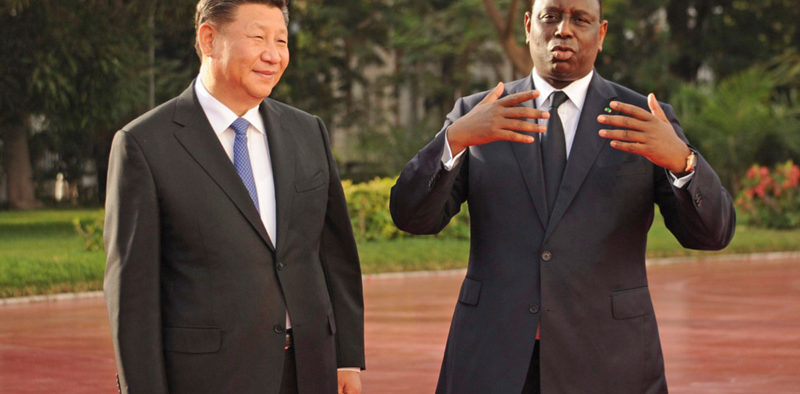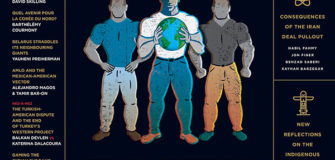Which African Country Can Become a Term-Setter?

Niagalé Bagayoko
Le Sénégal a la capacité d’être l’un des «term-setters» africains sur le plan international. Le Sénégal est, à n’en pas douter, le pays d’Afrique francophone dans lequel la démocratie est la plus solidement ancrée, en raison d’une trajectoire historique assez singulière. C’est en effet sous la période coloniale que les originaires des dites «quatre communes» (Dakar, Saint-Louis, Rufisque et Gorée) s’étaient vus attribuer certains droits politiques – tels que l’électorat et l’éligibilité – tandis qu’un décret de 1914 les avait exemptés du régime de l’indigénat.
Après l’indépendance, l’armée sénégalaise s’est très tôt distinguée en refusant, pour l’essentiel, d’intervenir dans la grave crise politique qui opposa, en 1962, le premier Premier ministre Mamadou Dia au Président Léopold Sédar Senghor, inaugurant une tradition républicaine qui, au fil des années, s’est doublée d’un professionnalisme acquis notamment avec la participation de la totalité du personnel militaire sénégalais aux opérations de maintien de la paix, notamment onusiennes.
Si l’indépendance de sa justice, fréquemment mise en doute, parvient à s’imposer, le Sénégal a les capacités de devenir un État africain porteur de l’idéal démocratique et républicain – d’abord au niveau de l’Union africaine, puis de manière croissante sur la scène internationale.
Les élections de 2000, qui ont consacré l’alternance au pouvoir, ont démontré la vitalité et l’indépendance de la société civile et des médias sénégalais conquises sous le mandat du Président Abdou Diouf. Le pays s’est en outre modernisé sur le plan économique sous la présidence d’Abdoulaye Wade. Si l’indépendance de sa justice, fréquemment mise en doute, parvient à s’imposer, le Sénégal a les capacités de devenir un État africain porteur de l’idéal démocratique et républicain – d’abord au niveau de l’Union africaine, puis de manière croissante sur la scène internationale.
» Niagalé Bagayoko est présidente de l’African Security Sector Network à Accra, au Ghana.
Stephen Lamony
The African country that can become a term-setter this century must be a country with effective political leadership, strong democratic principles, significant economic and military capabilities, and a very solid human rights record.
Six nations – Algeria, Egypt, Rwanda, Ethiopia, South Africa and Nigeria – are, for all their imperfections, closest to achieving this status. While all of these countries have the potential to lead on the continent, such leadership would doubtless come with different types of challenges for each country.
Algeria and Egypt both have influence on the continent, but they struggle to be accepted in the region. Both countries have dual African and Arab identities. Their deep relationships and attachments in the Middle East naturally make it difficult for them to exert influence over sub-Saharan African countries.
Rwanda’s experience of genocide allows it to claim the mantle of a country that can suffer from the worst possible conflict and still recover with a strong economy. It is a fact of African life today that Rwanda and its president, Paul Kagame, have been very influential in the region. Still, as a smaller economy, Rwanda’s change-making capacity is objectively limited. Moreover, the country lacks some of the most fundamental rights in practice, including the right to free speech.
Ethiopia, for its part, is much bigger in population than Rwanda, and has a serious overpopulation problem to boot. Absent deep social policy reform and economic innovation, it will struggle to be competitive and stable in the coming decades.
South Africa’s economy is second only to that of Nigeria, and the country is the most industrialized country on the African continent. South Africa also wields the most heft outside of the region – as a BRICS member and as the lone African state in the G20. And yet corruption and post-apartheid domestic dislocations have clearly affected South Africa’s ability and confidence to lead.
Nigeria, Africa’s economic powerhouse – with a GDP larger than most European countries outside of the top tier – is clearly able to exert significant political influence on the continent. The country has wielded its power in ECOWAS and the African Union. It has also represented the African Group on the UN Security Council five times – more than any other African country, indicating that African countries trust Nigeria (more than any other country on the continent) to represent their interests.
Nevertheless, in the wake of Boko Haram, the Nigerian military has regularly violated international human rights and humanitarian law. A weak human rights reputation will, over the medium run, prevent the country from assuming a clear or uncontested term-setting role in Africa, and certainly beyond Africa – even if Nigeria will remain the most important country in Africa for much of this century.
» Stephen Lamony is Senior UN Advocate for Africa, International Advocacy Programme of Amnesty International.
Herbert M’cleod
The two African countries most likely to become term-setters this century are Ethiopia and Rwanda. It is instructive that their economies, while similar in some respects, also have peculiarly different characteristics. Both are poor and sit in the bottom quarter of the Human Development Index and global per-capita GDP rankings. On the other hand, both have enjoyed annual GDP growth rates of more than seven percent over the last 10 years.
Ethiopia, population 105 million, is large, with a huge domestic market. Rwanda, with one-ninth the economy of Ethiopia, is small and must depend on international trade for any success in industrialization. And yet both enjoy strong leadership, with clearly articulated national development goals and relatively low levels of corruption. This, to be sure, is also the general view of a significant proportion of the international investment community.
While not all sectors of the Ethiopian and Rwandan economies are open, the governments in Addis Ababa and Kigali are firm in their development strategies and plans, thereby projecting the high degree of internal stability that is attractive to investment. Both countries have invested heavily in infrastructure. Moreover, unlike many other African countries that tend to respond – as if by instinct – to aid or business offers favourably regardless of whether these may fall within their national plans, Ethiopia and Rwanda tend to accept only what they want – that is, what is generally consistent with their national trajectories.
Rwanda is quite active in pushing the East African Community to become a bona fide free-trade area. Ethiopia, for its part, appears to be playing an increasingly influential role in restoring stability to Somalia and Eritrea.
Both countries evidently have serious governance challenges. Of course, it is debatable, in the African context, whether internal stability can be traded off satisfactorily for the trappings of Western democracy when the necessary political cultures and institutions for checks and balances are, in many cases, still embryonic. This is not a hagiography of the benevolent dictator. Still, to the extent that leadership is key to national success, both Ethiopia and Rwanda have heads of government that have delivered social services effectively to their respective populations. These same heads of government will remain in power for at least another four years, consolidating the same logic of strong, centralized governance – and for all practical intents and purposes, laying the groundwork for future term-setting on the continent.
» Herbert M’cleod is Director of the International Growth Centre in Liberia and Sierra Leone, prior to which he was an adviser to the president of Sierra Leone.











